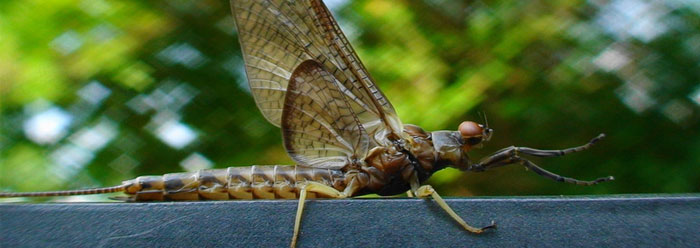Life's amazing complexity cannot be denied. We see all around us a seeming universality of perfection. The inner complexity of living creatures is matched by symbiotic relationships between life forms, a mutual dependency that defies a sequential appearance of the entities involved. Nature has balance, from the intricate food chain to a recycling of resources. The plant and animal kingdoms give every appearance of having been created, on purpose, by a very wise Creator.
Evolutionists see the same universality of perfection, yet they deny any creative agent. The irreducible complexity of life that seems obvious to anyone who believes in the existence of a supernatural Creator, is ascribed by evolutionary scientists to unthinking natural causes.
How can they do this? Is it logical? Is it credible? What is the thought system that permits such a conclusion? It behooves us from time to time to remind ourselves of the parameters of evolutionary thinking.
Naturalistic Explanations
First and foremost is a faith commitment to naturalism, an interpretive system in which natural causes are the only ones allowed. Some adherents have even gone so far as to redefine "science" as "naturalism." Instead of science being the search for truth, it becomes the search for a believable naturalistic explanation for every scientific observation.
Other naturalists would insist that even if creation and intelligent design are true, they cannot form the basis for a valid scientific approach. Not all evolutionists are atheists, but evolution is atheistic at its core. So the first secret of evolution is that all explanations must be naturalistic. If there is a God, He must be arbitrarily kept out of science and scientific interpretations. Even if naturalistic explanations strain credulity, they are accepted and supernatural causes are categorically shunned.
Time
Next is a reliance on deep time--time enough for virtually anything to happen. Evolution depends on beneficial mutations as a mechanism for change, genetic modifications that confer some selective advantage to the mutated being. These are unspeakably rare--indeed, none have ever been documented that have actually added information to the genome. Some mutations may have produced a temporary advantage that could be selected by natural selection, but such changes actually involved the loss of a trait, a reduction in the genome's complexity.
Evolution would require trillions of beneficial steps to turn a single-celled organism into a man. We have never observed such positive genetic steps, but in millions and millions of years it is supposed that they would happen sometimes. So time seemingly solves the problem.
Death
Then there is the evolutionary necessity of struggle and death. Survival of the fittest actually means extinction of the unfit. The vast majority of individuals, as well as types of individuals, must be sacrificed for the select favored few to survive. For instance, the dinosaurs' extinction allowed mammals to flourish, supposedly leading to the emergence of man. If there is no death, there is no evolutionary progress.
Naturalism, time, and death--how strong a scientific foundation are they? Obviously, we have no way of knowing absolutely that no supernatural agent has ever acted. We live in a world in which we observe only natural processes, but how could we know what happened in the long ago past? Likewise, we have no assurance of immense spans of time in which these natural processes operated. We are locked into the present, and the inaccessible past lies beyond our reach. And death--is it a creative power? Does death by natural selection produce higher forms of life? Quite the reverse: death is an ending, not a beginning.
Evolutionary thinking relies on these questionable concepts to present itself as scientifically plausible. But as we have seen, these secrets are neither necessary nor logical. Rather, they are a choice, a position willingly taken in spite of overwhelming evidence to the contrary. Evolutionary theory has become an entire worldview, a way of interpreting the evidence--but it is a worldview with a very shaky foundation.
* Dr. Morris is President of the Institute for Creation Research.
Cite this article: Morris, J. 2008. The Secrets of Evolution. Acts & Facts. 37 (3): 13.












































